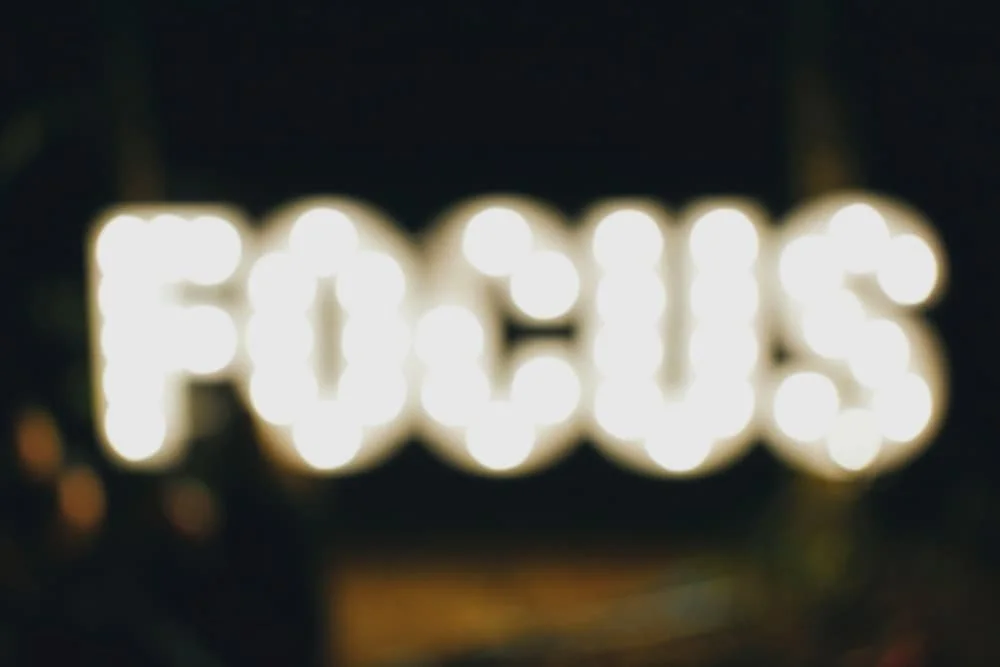Overcoming Perfectionism: Why Your Perfectionism Is Killing Your Career and What To Do About It
Perfectionism is harming your health and killing your career. So overcoming perfectionism is essential for your long-term health, happiness, and career success.
According to a study in Psychological Bulletin, perfectionism is increasing. That increase comes with a rise in serious mental health consequences, including eating disorders, anxiety, and depression.
Our standards are excessively high. Our self-evaluations are overly critical. Social media floods us with impossible ideals and amplifies social comparison.
Combined with the fact that roughly 70% of people aren’t satisfied in their careers, it’s easy to see why people are exhausted, anxious, and dubious they’ll find career happiness.
We’re holding ourselves and others to an impossible standard.
You Think You’re Just Being Conscientious
The challenge with overcoming perfectionism is that many high-achievers experienced early success despite perfectionist tendencies.
That extra attention to detail and obsession with getting it right helped you stand out and rise up the ranks in the first place.
But as your oversight expands and your work slate grows, the overwhelm deepens.
There’s no room for error. Everything is a priority and nothing can drop.
You don’t have enough time to get everything done to the level you want, yet you fear what others will think if you pull back.
No one can do it as well as you, so you might as well do it yourself.
You want to make sure your argument/project/idea is flawless so people will take you seriously and get on board.
Sound familiar?
Unlike conscientiousness (doing something well), perfectionism (doing it flawlessly) is neither scalable nor sustainable.
So what are we going to do about it?
Rather than focus on tactics from the modern western world, I suggest we adopt a strategy rooted in ancient eastern ideals.
Enter Wabi-sabi.
Career Wabi-sabi
Wabi-sabi is a Japanese philosophy which values imperfection, impermanence, and incompleteness. It's about nature, simplicity, beauty, growth, and decay.
Wabi sees the quirks and anomalies arising from the process of creation as unique and elegant. Imperfections make things more interesting, and thus more valuable.
Sabi recognizes the beauty and serenity that emerges over time. The wear and tear of daily life makes it more beautiful.
A wabi-sabi career celebrates the wisdom gained on the journey and the beauty of the winding road you take to get there. It’s rooted in experience, growth, and continuous evolution. It breeds confidence because there are no mistakes, only steps forward.
Wabi-sabi is the antidote to perfectionism.
Why Your Perfectionism Is Holding You Back In Your Career
Friendly reminder that perfectionism is striving for an unattainable ideal, then punishing yourself for not reaching said unattainable ideal.
As Einstein once said, “That’s messed up.”
But if you’re like most perfectionist high achievers, you don’t like not being good at things. You don’t like not having the answers. It’s uncomfortable because you’re used to succeeding.
It becomes part of your identity. But it raises a terrifyingly high-stakes question: what does it mean if you fail?
Thus we’d rather succeed at something “safe” rather than potentially fail at something we really want. If this isn’t the best argument for overcoming perfectionism, I don’t know what is.
So rather than taking a swing and missing, you stay in a job that doesn’t serve you.
You don’t start that passion project because your friends might see you falter.
You talk yourself out of that leap because you want everything to line up first.
You don’t ask for help because you don’t want to be seen as “weak.”
You aim to perfect a lot of little things around the edges rather than focus on the ONE significant effort that will make a real impact.
You stay stuck because you don’t want to make the wrong move.
You obsessively rewrite a blog post on perfectionism because you’re afraid of missing a key point. ;)
Career perfectionism implies that there's a single, correct path surrounded by an ocean of hot lava. No wonder you're stuck.
There Are No Mistakes When You’re Moving Towards Your Goal
To overcome perfectionism, what if you focused on the process, where you viewed each step not as an opportunity to be right or wrong but to get closer to the career you want?
As wabi-sabi teaches us, that step might be imperfect, but it's also impermanent. Time to take another step. Move forward, pivot, change—each time building toward something even better.
Continuous action also lowers the stakes because it reduces the need for any step to be perfect. It’s just a step. Not a step with huge consequences. Just a teeny tiny step with a million opportunities to get real-life data, learn, and tweak.
What sounds better: a messy step forward or pristine career stagnation?
Imperfect action is better than perfect stagnation.
The path to a fulfilling career is filled with cracks. That’s where you find the gold.
Mine your mistakes and failures for the invaluable lessons learned, paths revealed, and all-important ego checks.
It's the experiences that are most uncomfortable and challenging that we learn the most about ourselves: what we're great at and what's most important to us.
Sometimes the things that we're truly great at are beneath the surface, hidden in one of those cracks. But you won't know unless you start down the path.
As Thích Nhât Hanh teaches, your destination is in every step. Peace, joy, fulfillment: they’re not some distant milestone. They’re accessible right now. (I find this concept so freeing.)
What are you choosing in this moment: peace, joy, fulfillment? Or something else?
Perfectionism Stamps Out Discovery and Continuous Improvement
Imagine if Alexander Fleming had gotten to work on September 28, 1928, and beat himself up for leaving the Petri dish uncovered.
What if he spiraled into a vortex of negative self-talk, ruminated about his contemporaries’ criticisms, and gave up out of fear he’d never succeed?
Instead, he discovered penicillin, won the Nobel Prize, and revolutionized medicine.
An imperfect experiment led to a life-changing discovery.
Why then, when we make mistakes (usually as minor as an unattended petri dish), do we assign blame, make it portend something ominous, or give up? Or fear the potential of a mistake so much that we procrastinate or don’t even try?
Mr. Fleming knew he had to experiment. But when we’re making career moves, we try to jump straight to the Nobel prize. And get frustrated when it doesn’t happen. Or talk ourselves out of it before we've even begun.
Treat your career as a grand experiment that will lead to discoveries about what you want and what makes you happy.
You build your ideal career by the actions you take every single day—and the beautiful discoveries you couldn’t have even imagined that result.
Perfectionism Distracts You From the Work That Makes the Biggest Impact
Overcoming perfectionism isn’t a one and done activity. It’s a habit we can build.
We’ve all gone down the rabbit hole of focusing on minor details—getting the font just right, searching for the perfect way to word something, waiting to take action until the “right” moment.
The challenge is when our obsessiveness takes us away from the work that truly matters…or leads to us not taking any action at all! Perfectionism pulls us into the weeds, away from the big picture.
Waiting on “perfect” leads to procrastination. It moves us from, “I have this important thing to share, but I can’t find the exact right way, so I just won’t.”
That time you spend wording and rewording your LinkedIn profile, resume, or intro message is time you’re NOT out there talking to the people who will help you get the career and life you want.
Big picture: those details are not getting you close to the thing you want. Showing up now, as yourself, exactly where you are, will.
The longer you spend agonizing over your writing, art, product, or whatever you’re creating, the longer those who would buy it exactly as it is now will need to wait. (And the longer you wait to earn money by sharing your gifts).
There is something about perfectionism that bumps up against authenticity. The more time we spend polishing and shaving off our edges trying to appeal or please the masses, the less time we’re spending appealing to the right people for us.
If you spend the meeting not sharing your idea because you’re overthinking how to say it, guess what? You’ve just robbed them of your idea.
Your people will love whatever you put out there regardless. Because it’s you.
So set a timer, get it to “good enough,” and put it out into the world.
What Would It Look Like To Be Perfectly You?
I don’t even consider myself to be a perfectionist, yet I’ve struggled to overcome perfectionistic ideals of who I should be as a leader.
A few years ago, I was talking to a former colleague. I was at a low point at work, and low-key fishing for compliments, when I steered the conversation towards her assessment of my leadership capability.
She quickly pronounced my greatest leadership quality as, “You’re quirky.”
Quirky? Quirky! QUirKy.
I had failed. I had an image of the ideal leader, and quirky wasn’t it.
Yet my friend’s sincerity led me to get curious about the gold in being quirky.
I started to see my quirkiness as an asset, my own special brand of creativity, humor, and let’s-do-things-differently.
I stopped trying to fix everything and control every outcome. I started injecting more quirkiness to add levity and build rapport. I asked more questions and admitted not knowing the answers, which was a tremendous weight off my shoulders and honestly a revelation in terms of how much better it made others feel. I let crap go because it was never going to be perfect, I couldn't be all things to all people, and I’d rather spend my time on other things.
I remember configuring my office differently than every other leader on the floor (facing the window rather than with my back to it)—an ostensibly insignificant move. But boy were the wrong people thrown off by it. And boy were the right people really intrigued by WHY I did it.
In short, I became a better leader because I shifted from aspiring to be a perfect leader to being perfectly myself.
Not only had I been trying to live up to a false ideal of leadership, I didn’t even like the ideal I was chasing:
What ideals are you trying to live up to?
Where do they come from?
How do they align with what you truly want?
Don’t just embrace your quirk, find its beauty. Be perfectly you. It takes a lot less energy, and you’re already great at it—the best, actually.
Overcoming Perfectionism Starts With Finding Peace In the Process
If there’s one thing I want you to take away, it’s that creating a life and career you love doesn’t need to be so hard. Neither does overcoming perfectionism. Yes, it takes work, but it’s totally doable.
Perfection is NOT doable. It breeds fear and anxiety and can never be achieved.
Wabi-sabi your career instead:
Embrace your fallibility and accept help from others.
Show your vulnerability and build strong relationships.
Take calculated risks, so you can safely fail, so you can have amazing stories that inspire, entertain, and help others.
Make your art, so you can be who you’ve always known you were—and move others to do the same.
Master the art of ongoing, unfinished imperfection: design, build, tweak, repeat.
Above all, get out of your head and take steps towards what you want. Big or small, move forward imperfectly. This is how to overcome perfectionism.
Ready for a career that matches who you are?
Grab the free guide: 4 Steps to Take Back Your Life and Design a Career with Purpose
Learn how to work through the right options for you and find opportunities you didn't even know were possible.
Author Bio:
Before becoming a coach, Caroline worked in management consulting and financial services. She's made it her mission to help people grow, contribute, and get wherever they want to go.
She’s also a tennis fanatic, aspiring Minimalist, FIRE (Financial Independence and Retire Early) enthusiast, and Aloha Spirit seeker 🤙. She loves to share stories from her unconventional life and career focused on freedom, creativity, fun, health, family, and community. If she can do it, you can, too.
The life and career you want is possible once you have the roadmap. Take the first step by downloading your free guide: 4 Steps To Take Back Your Life and Design a Career With Purpose.
































